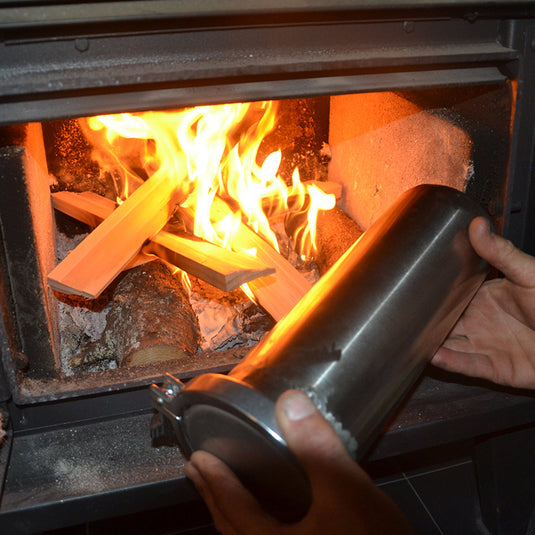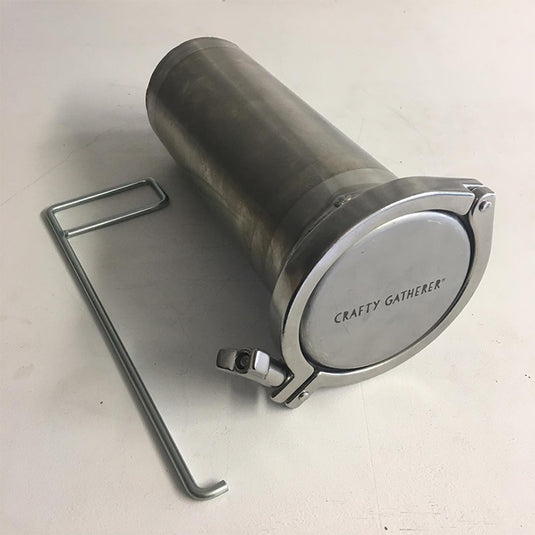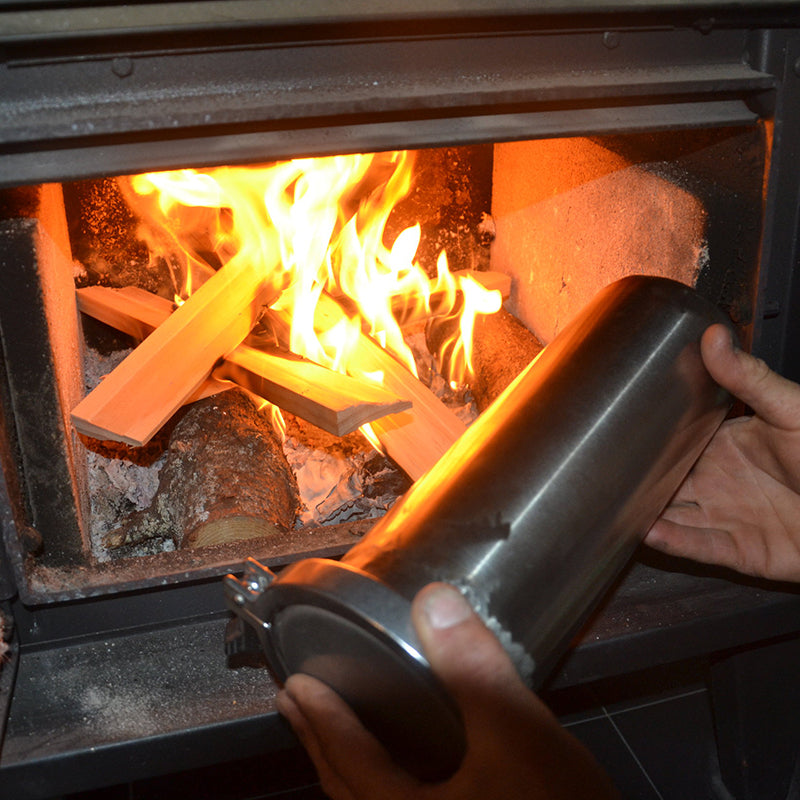
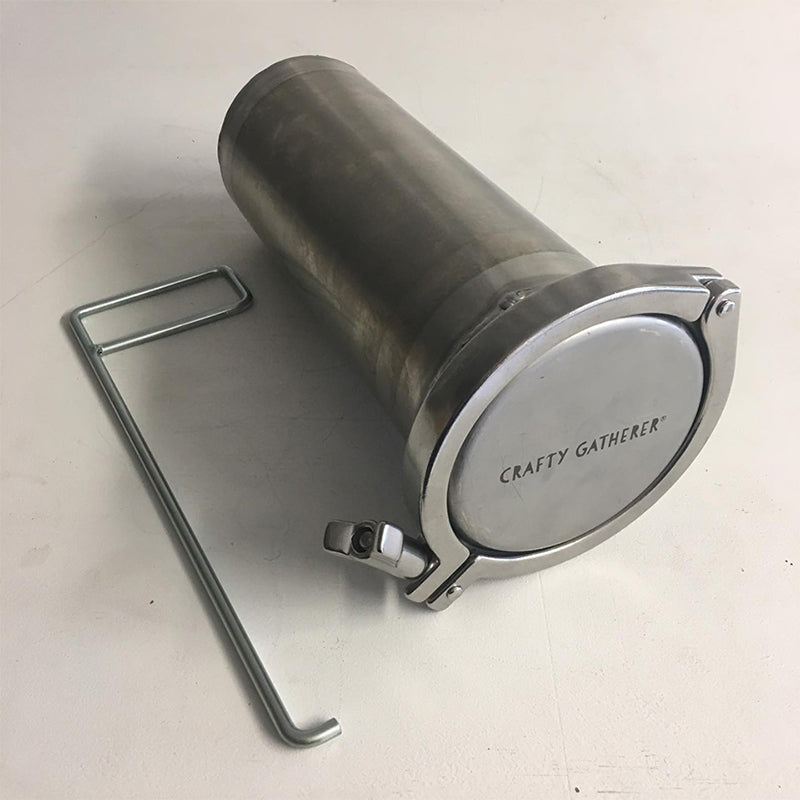

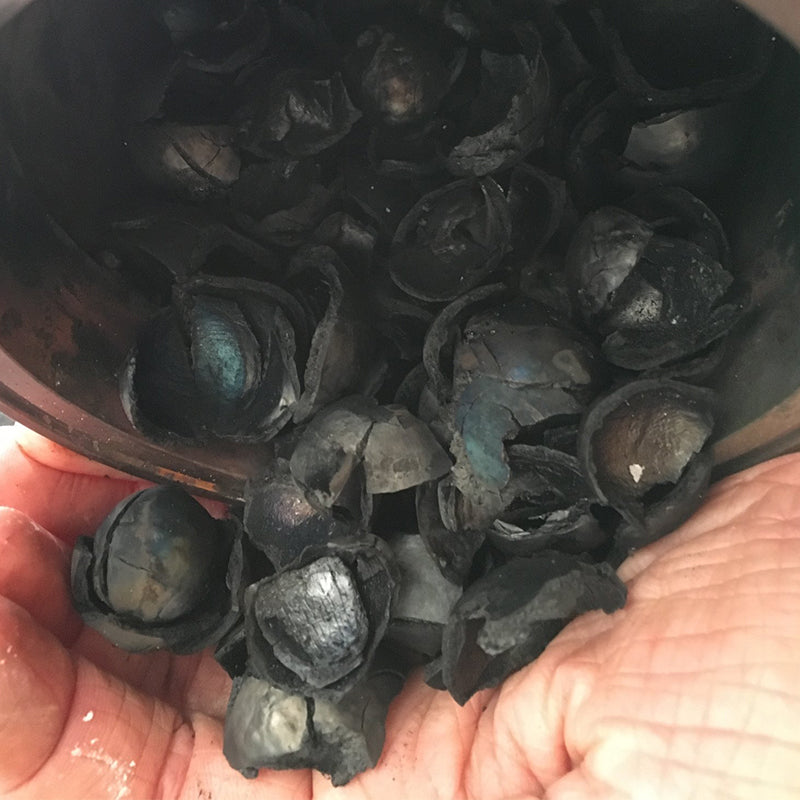
Biochar is essentially charcoal, but not like the charcoal you buy. It is an age-old method of increasing soil health, it has been around for thousands of years.
Biochar can be made from any biomass such as wood chips or twigs, bones, dried manure, paper, sawdust, nut shells etc. It is produced through pyrolosis – which is the burning of the wood in an oxygen limited environment so that the liquids and gases are released during pyrolosis and then leave mostly carbon behind. This remaining carbon is what we call biochar.
Biochar is great for improving soil structure, it is extremely porous, it is like a sponge and has a large surface area making it a great home for beneficial microbes to thrive and multiply. The surface area is so large that 1gram of biochar can have roughly 25metres of surface area! Because of its large surface area it can attract and hold nutrients and water and prevent them leaching from the soil, meaning in time less watering and fertilising.
Biochar remains in the soil intact for hundreds of years, so can permanently change a soil’s structure, improving aeration of compacted soils or increasing the water-holding capacity of sandy soils! Biochar has a negatively charged surface area which is able to bind to positively charged ions, there are many benefits of this including; helping to raise the pH of the soil, binding of nutrients that otherwise might leach from the soil (e.g. nitrogen, potassium, calcium - all of which are positively charged and so bind to biochar), and also biochar is able to bind to heavy metals potentially found in urban soils preventing the plant and soil taking these metals on.
Biochar needs to be inoculated or charged, so that it can start its work straight away. This can be charged through soaking it in compost tea or peeing in it (Marco's favourite) it can then be added straight to the soil or into your compost.
Can also be used in your seed raising mix, mixed in to the soil when transplanting plants or trees, !
And because biochar is carbon-negative, meaning it is able to capture and store Co2 - what a great way to do our part for climate change by helping to store carbon in the soil!
Biochar is essentially charcoal, but not like the charcoal you buy. It is an age-old method of increasing soil health, it has been around for thousands of years.
Biochar can be made from any biomass such as wood chips or twigs, bones, dried manure, paper, sawdust, nut shells etc. It is produced through pyrolosis – which is the burning of the wood in an oxygen limited environment so that the liquids and gases are released during pyrolosis and then leave mostly carbon behind. This remaining carbon is what we call biochar.
Biochar is great for improving soil structure, it is extremely porous, it is like a sponge and has a large surface area making it a great home for beneficial microbes to thrive and multiply. The surface area is so large that 1gram of biochar can have roughly 25metres of surface area! Because of its large surface area it can attract and hold nutrients and water and prevent them leaching from the soil, meaning in time less watering and fertilising.
Biochar remains in the soil intact for hundreds of years, so can permanently change a soil’s structure, improving aeration of compacted soils or increasing the water-holding capacity of sandy soils! Biochar has a negatively charged surface area which is able to bind to positively charged ions, there are many benefits of this including; helping to raise the pH of the soil, binding of nutrients that otherwise might leach from the soil (e.g. nitrogen, potassium, calcium - all of which are positively charged and so bind to biochar), and also biochar is able to bind to heavy metals potentially found in urban soils preventing the plant and soil taking these metals on.
Biochar needs to be inoculated or charged, so that it can start its work straight away. This can be charged through soaking it in compost tea or peeing in it (Marco's favourite) it can then be added straight to the soil or into your compost.
Can also be used in your seed raising mix, mixed in to the soil when transplanting plants or trees, !
And because biochar is carbon-negative, meaning it is able to capture and store Co2 - what a great way to do our part for climate change by helping to store carbon in the soil!
 is here! Shop now, pay later in 4 easy installments
is here! Shop now, pay later in 4 easy installments

